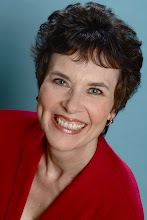We need some deep, collaborative thinking and cooperative action to bring about improvement in potentially very difficult circumstances. Our instinct may be to pull in tighter, to trust less, to give and listen less, and to hold onto our own. But that behavior only makes the crisis deeper and the pain more acute.
What is compassion, really? It is the ability to stand in another person's shoes, metaphorically speaking, and get a view of life from her perspective. It may reveal things we have not encountered and never considered. It can stop us from minimizing another person's pain.
I was once in a class that explored evil as a phenomenon. The professor had worked with Holocaust survivors. I suggested that even the worst people chose evil behavior because of something they had experienced. The professor responded that such an idea would be perceived by some Holocaust survivors as a way of excusing evil. She said, in effect, that to try and understand was to minimize the suffering that these survivors had experienced.
I can summon only the palest glimpse of the devastation behind the rage, humiliation and grief of someone who lived through and witnessed that kind of abuse. Mustering all the respect and courage I can, I still believe that we must try to understand. Pain that is inflicted arises out of pain.
How can we prevent genocide–or any cruel, devastating abuse–if we have no idea where it came from? Hatred, prejudice and evil behavior don't arise on their own. They have a root. They have a beginning. What if we could discover what causes this emotional cancer and stop it before it takes over the thoughts, soul and spirit of a young person?
Would we govern differently if we understood the full impact and cost of our global decisions? Would we parent differently if we felt the impact of our words and behavior on our children? Would we have more compassion for ourselves if we understood how the parenting and governance we have already experienced shaped the people we have become?
Today I attended the annual fund raising luncheon for Safe School Ambassadors, a program to reduce school violence, bullying, and isolation. Every day 160,000 kids from kindergarten through high school stay home from school. Not because they are physically sick, but because they are terrified of what will happen to them if they go to school. Every day they experience cruelty or humiliation. How long can a child feel daily terror and remain emotionally balanced?
SSA, a program of Community Matters, was begun after the Colombine High School shootings. It has begun to effectively change the culture in schools by working with young people who are natural leaders in their own circles at school, training them in intervention strategies the kids themselves can use in the moment.
These kids are leaders in their own peer groups at school – athletes, geeks, gang members, academic whiz kids, "cool" kids – bringing them together and revealing their shared humanity through their own stories. As they discover they are not so different from one another, they begin to look out not only for their own friends with these new skills, but each other's friends as well. Little by little the culture of intimidation shifts in these schools.
A senior from a local high school sat at my table and told us how a good friend of his had been suicidal and had been helped through the skills he had learned through the SSA program. Without that practice, he said, he would not have had the courage to try and intervene, and his friend might have died. This is compassion and courage in action, expressed both by this young man and by SSA and the school. Together, they saved a life. What if that life had been the life of your child?
Emotional healing is directly related to compassion. What might happen in the world if adults could learn how to live more compassionately? Yes, we must be held accountable for our actions, regardless of our past. Perhaps we must also begin to be more accountable for our shared future, actively seeking out ways to strengthen our own courage and compassion.




No comments:
Post a Comment